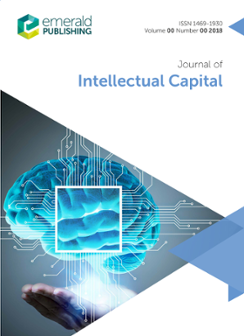智力资本与倦怠对专业护士创新工作行为的交互作用
IF 6.8
2区 管理学
Q1 BUSINESS
引用次数: 1
摘要
目的本研究旨在探讨职业护士的智力资本与创新工作行为之间的倦怠调节作用。设计/方法/方法采用混合方法,包括进行定量调查和定性半结构化访谈。从844名护士中收集了定量数据。共对20名参与者进行了访谈,其中包括护理总监、首席护理官、运营总经理、教授兼校长、医生、护士教育工作者、病房负责人和与多人合作的护士,孟买(印度)的超专业私立和慈善信托医院。发现智力资本和倦怠(智力资本*倦怠)互动使创新工作行为的比例从0.09增加到0.15,增加了66.67%。研究结果还表明,护士的智力资本与创新工作行为之间的倦怠具有显著的负向(-0.09)调节作用。定性研究结果也可以证实和支持人力、结构和关系资本有助于护士创新。然而,每当护士感到精力、热情、动力和疲惫时,他们往往会变得不那么创新,只继续日常工作。研究局限性/含义本研究为多专业、超专业的私人和慈善信托医院管理层重新认识和降低倦怠水平以减轻其不利影响提供了新的含义。原创性/价值据作者所知,这是第一项与在印度多专业、超专业私人和慈善信托医院工作的专业护士有关的研究和发现。本文章由计算机程序翻译,如有差异,请以英文原文为准。
Testing interaction effects of intellectual capital and burnout on innovative work behaviour of professional nurses
PurposeThe present study aims to examine the moderating effect of burnout between intellectual capital and innovative work behaviour of professional nurses.Design/methodology/approachMixed-method approach was followed that involves conducting both quantitative surveys and qualitative semi-structured interviews. Quantitative data was collected from 844 staff nurses. Interviews were conducted with a total of 20 participants including director of nursing, chief nursing officer, general manager operation, professor cum principal, doctors, nurse educators, ward in charges and staff nurses working with multi, super speciality private and charitable trust hospitals in Mumbai (India).FindingsIntellectual capital and burnout (intellectual capital*burnout) interaction increased the proportion of innovative work behaviour from 0.09 to 0.15, an increase of 66.67%. The results also reveal a significant and negative (−0.09) moderating effect of burnout between intellectual capital and innovative work behaviour of nurses. Qualitative findings also could confirm and support that human, structural and relational capital help nurses to be innovative. However, whenever nurses feel a loss of energy, enthusiasm, motivation and exhaustion, they tend to become less innovative and continue only with the routine works.Research limitations/implicationsThis study provides a new implication for multi, super speciality private and charitable trust hospitals management to relook at and reduce the level of burnout to mitigate its adverse effect.Originality/valueTo the best of the authors’ knowledge, this is the first study and findings related to professional nurses working in multi, super speciality private and charitable trust hospitals in India.
求助全文
通过发布文献求助,成功后即可免费获取论文全文。
去求助
来源期刊

Journal of Intellectual Capital
Multiple-
CiteScore
14.50
自引率
13.30%
发文量
27
期刊介绍:
The Journal of Intellectual Capital is a peer-reviewed international publication dedicated to the exchange of the latest research and best practice information on all aspects of creating, identifying, managing and measuring intellectual capital in organisations. The journal publishes original research and case studies by academic, business and public sector contributors on intellectual capital strategies, approaches, frameworks, tools, techniques and technologies in order to increase the understanding of intellectual capital within the context of the modern knowledge economy. The focus of this journal is on the identification of innovative intellectual capital strategies and the application of theoretical concepts to real-world situations.
 求助内容:
求助内容: 应助结果提醒方式:
应助结果提醒方式:


